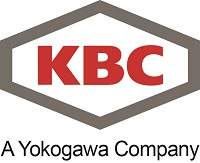KBC, the business improvement company for the energy and chemical industry, announced a collaboration with OLI Systems to deliver an exciting enhancement to the application of simulation software for engineering design, debottlenecking, troubleshooting and optimisation studies.
This will be realised through the interoperability of the industry’s two leading thermodynamics and physical properties software solutions (OLI Systems’ OLI Alliance Engine and KBC’s Multiflash) within KBC’s Petro-SIM process simulation platform.
The native integration of these simulation software packages will result in effortless data exchange between the OLI Alliance Engine and Petro-SIM. It enhances the simulation capabilities of Petro-SIM in upstream oil and gas production, NGL (natural gas liquids) processing, LNG (liquefied natural gas), oil refining, petrochemical and chemical manufacturing operations. Process and production engineers will benefit from greater model fidelity and engineering efficiency.
The OLI Alliance Engine is a comprehensive electrolyte chemistry modelling, simulation and analysis software package that includes a deep range of thermodynamic and thermophysical property models, solvers, phase and equilibrium calculations for third-party process simulators. It is used for activities such as process modelling, prediction of corrosion and scale environments and water management, all of which require rigorous prediction of chemical reactions and phase behaviour of complex mixtures of chemicals in water under varying temperatures, pressures and ionic strengths.
KBC’s Petro-SIM is the Energy and Chemical industry’s most widely applicable steady-state and dynamic process simulation and optimisation software solution. Its open platform architecture promotes exceptional levels of integration with third-party software packages to drive improved collaboration among project teams. It supports full engineering workflow across the process lifecycle from design and operations, through performance optimisation, digital twin surveillance and stewardship, reducing capital and operating expenses.
The addition of the OLI Alliance Engine to Petro-SIM will build on KBC’s leading position in thermodynamics research and application to process simulation. Multiflash, which is already available in Petro-SIM, is the de facto standard PVT (pressure-volume-temperature) modelling solution for hydrocarbon flow assurance and production modelling and includes accurate and reliable modelling solutions for chemical and petrochemical applications. Multiflash is applied to evaluate the phase behaviour and physical and transport properties of complex mixtures and pure substances. Excelling in modelling multi-phase hydrocarbon mixtures, due to its scope and accuracy, it is also the chosen PVT solution for many of the world’s leading oil and gas, petrochemical and chemical producers.
KBC CEO Andy Howell said: “Thermodynamics and physical properties provide a common language for high fidelity digital twins in the energy and chemical industry. They are the most important building blocks for a data-meets-simulation approach to engineering design and optimisation.
“We are thrilled to be partnering with OLI Systems to bring their OLI Alliance Engine into KBC’s Petro-SIM process simulation portfolio, and extend our modelling coverage deeper in existing hydrocarbon applications and further into chemical markets”
OLI Systems Inc CEO Andy Rafal said: “OLI Systems prides itself on delivering comprehensive, rigorous solutions that address some of the most complex electrolyte chemistry challenges in the process industries with accurate electrolyte-oriented material property databases, thermodynamic models, simulation software and services.
“We’re incredibly excited to get to work on building out this joint product with KBC. KBC is renowned for delivering real-world answers to some of the industry’s toughest process problems using simulation technology. This integration will enable our mutual clients to significantly increase operational efficiency and productivity with more accurate and effective model predictions.”

